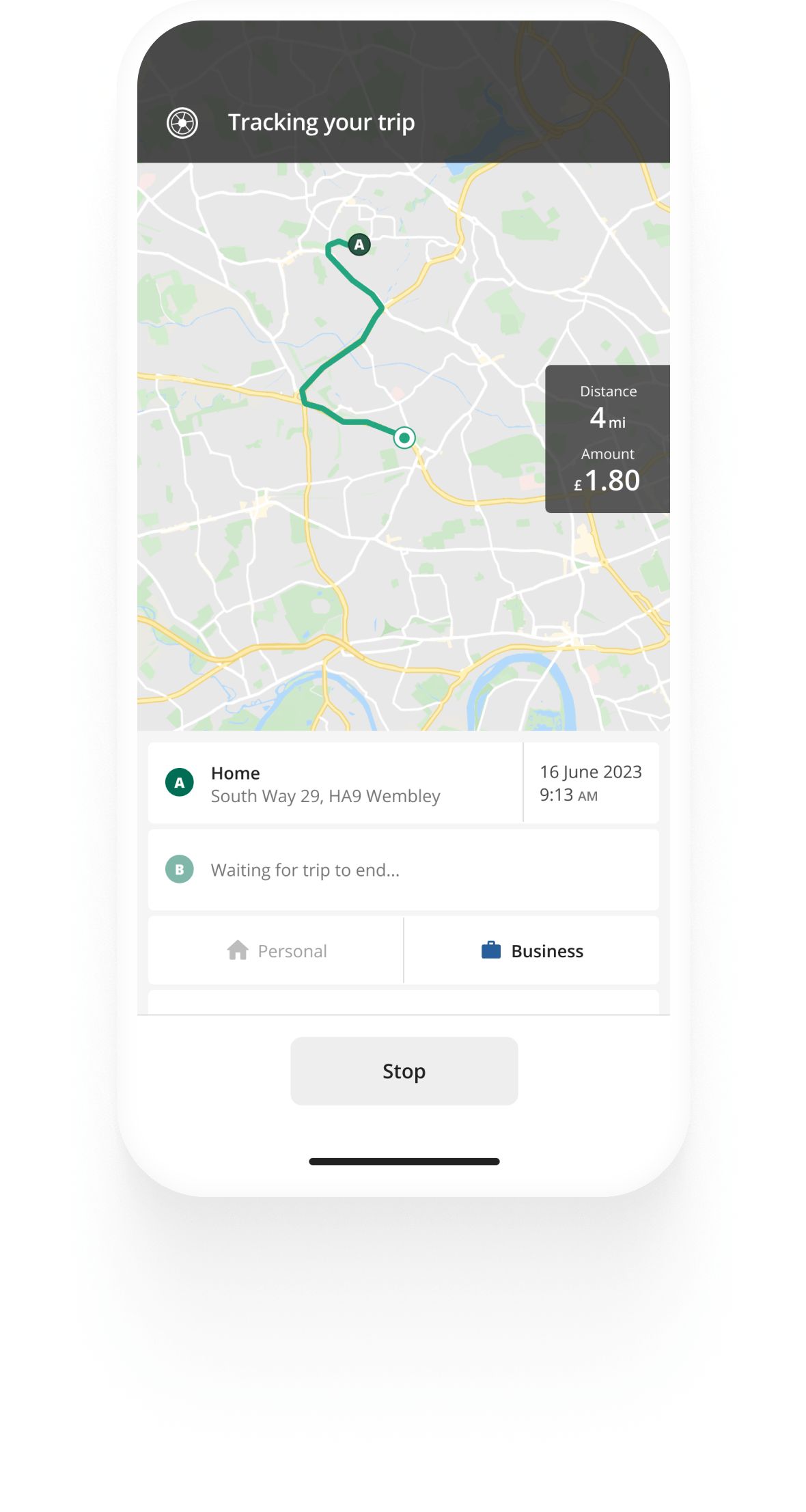Track mileage automatically
Get started
HMRC mileage rates 2024
HMRC-approved mileage rates 2024
The official HMRC business mileage rates for the tax year 2024/2025 are now confirmed, at 45p per mile for cars and vans for the first 10,000 business miles and 25p for each mile over the 10,000 mark. The rate for motorcycles is 24p, and 20p for bicycles.
The rates are applicable throughout the 2024/2025 tax year, which will run from 6 April 2024 until 5 April the following year.
| Vehicle | First 10,000 miles | Over 10,000 miles |
|---|---|---|
| Cars & vans | 45p | 25p |
| Motorcycles | 24p | 24p |
| Bicycles | 20p | 20p |


Mileage tracking made easy
Trusted by millions of drivers
Automate your mileage log Automate your mileage log

Automatic mileage tracking and HMRC-compliant reporting.
Get started for free Get started for freeMileage rates for motorcycles and bicycles
The 2024 rates for motorcycles and bicycles remain the same as in prior years as well, at 24p per mile for motorcycles and 20p per mile for bicycles.
The allowance has remained fixed since 2011, when it last received a 5p boost. Despite the parliament’s recent debate on whether to increase it to 60p due to rising fuel and vehicle maintenance costs, the government still believes it to be an accurate estimation.
How to apply the business mileage rates
If you drive for work, the 2024 HMRC rates are one way to get reimbursed. Depending on your professional situation, the conditions in which you apply them will be different.
If you’re an employer
As an employer, the government mileage rates are the highest, at which you can reimburse your employees for business-related driving. If the allowance is calculated at a higher rate than the HMRC-approved, excess payments will be taxed as income.
If you’re an employee
If you’re an employee driving a personal car for work, your employer can reimburse you for the business miles you drive.
The reimbursement, also known as the Mileage Allowance Payment (MAP), can be paid out using the fixed 2024 per mile rate or a dedicated sum for vehicle expenses.
If your employer does not reimburse you or does so at a lower rate than the advisory HMRC allowance, you can claim Mileage Allowance Relief (MAR) from HMRC on the shortfall.
If you’re self-employed
Self-employed can claim Mileage Allowance Relief at the end of the tax year using the flat pence per mile rate (simplified method) or opt to calculate based on the actual costs of running and maintaining your vehicle.
Read our comprehensive HMRC mileage guide to find out more about rates and rules.
Keeping a mileage log in 2024
Whether you’re seeking allowance payments from your employer or deductions from HMRC, both will require that you keep adequate records of your driving and related expenses.
A timely, accurate mileage log that’s HMRC-compliant needs to contain the following information:
- Date and purpose of the journey
- Distance travelled
- Start and end point of your journey, with full addresses and postcodes
Automated mileage tracking and logging
While some still turn to pen and paper for keeping track of journeys and miles driven, it can be a time-consuming ordeal to maintain.
A mileage tracking app can do the work for you, taking over from the moment you start your journey to the tedious end-of-tax-year reporting. It tracks and logs your business drives, allowing you to indicate their purpose and produce monthly HMRC-compliant reports.
FAQ

Tired of logging mileage by hand?
Effortless. HMRC-compliant. Liberating.
Latest posts
- Free mileage log book template
- Mileage claim calculator for the UK
- Benefit in kind (BiK) tax on company cars
Related posts
Free mileage log book template
27 March 2025 - 2 min read
Whether you're an employee or a business owner, it's crucial to keep good mileage records in a mileage log book.
HMRC Mileage Guide
13 February 2025 - 5 min read
Welcome to our guide on mileage claims and reimbursement in the UK. This guide will walk you through the rules that apply to your situation.
Free mileage log book template
27 March 2025 - 2 min read
Whether you're an employee or a business owner, it's crucial to keep good mileage records in a mileage log book.
.svg)
